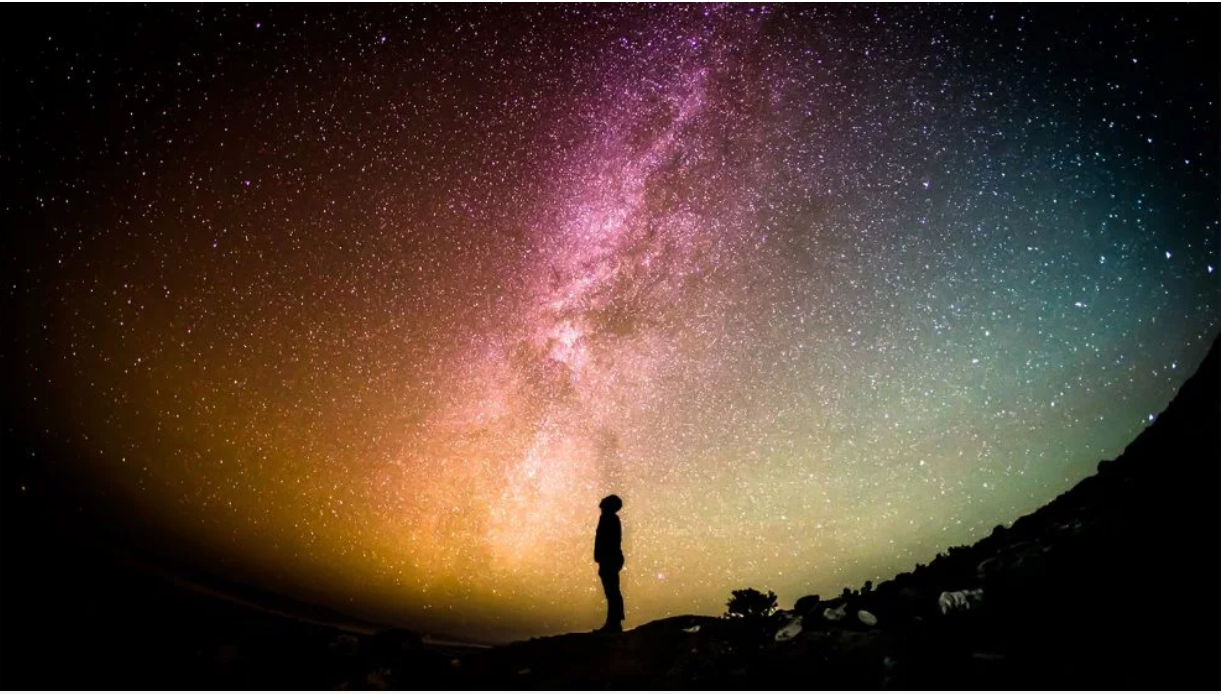Via RNS — We feel our smallness when we consider the universe, unutterably vast, dark and scattered.
Whole swaths of space are empty, while elsewhere galaxies drift through the void for eons of time before colliding with each other. Some stars go nova and incinerate the planets orbiting them, expending themselves in an explosion so powerful that our naked eyes can see it millions of light-years away. Cosmic dust coalesces and new stars are born, while black holes swallow light itself.
Here on our tiny terrestrial orb, circling a minor sun in a low-rent neighborhood on the edge of the Milky Way, our telescopes watch as the cosmos accelerates away from us, growing ever colder and more distant. We are but a speck.
I imagine that for you, too, the last few weeks have been an especially dark one, rightsizing us once again in the face of such tragedy. The massacre in Christchurch, New Zealand. The crash of the Ethiopian Airlines flight. And I don’t know if this is happening in your life, too, but so many people I care about are struggling with things they don’t deserve.
It has been awful. And, in a flash, their tragedy shines on a rent in the fabric of space and time that separates us from each other. In our pain, we are all the same. And it is necessary and obvious to say that anything that could happen to them could happen to any of us.
We find that we must confront our fragility, and signs of our mortality are everywhere. As John Donne writes:
Death is in an old man’s door, he appears and tells him so, and death is at a young man’s back, and says nothing; age is a sickness, and youth is an ambush; and we need so many physicians as may make up a watch, and spy every inconvenience. There is scarce anything that hath not killed somebody; a hair, a feather hath done it; nay, that which is our best antidote against it hath done it; the best cordial hath been deadly poison.
And so, we search for sense and fairness in the rubble of shattered bodies that we see on television or in our own homes. We assume that because our pain is so personal, it must be personally meant, that there must be some inherent significance to the suffering, some lesson the universe is trying to teach us.
But, no. Too often there is neither meaning nor order nor justice in that chunk of cancerous tissue, that patch of ice, or piece of faulty wiring. Everything can just… happen.
Lent is the right time to sit with these darker truths. This is the time to reflect on our limitations and to remind ourselves that none of us is immune to the universe. We are all one errant organ, limb, or joint away from losing that sense of freedom in our own bodies, and even the fittest of us inhabits a faulty body, designed to wear out and perish. From dust we were made.
Look, this is grim stuff. I get it. But this is the necessary antidote to the poison of our culture’s myth of perfectibility. We become too afraid to say the obvious: that things are not always getting better. And this fact should make us kinder to each other. As temporary creatures made of the same perishable material, we should see in each other fellow pilgrims headed in the same direction, worthy of our concern, people with whom we should be more patient, slower to anger, quicker to help.
How different are we really when we consider our lives and struggles and weaknesses?
Lent forces us to confront our disoriented mortality. And if you are already there, if Lent is where you live, this is a season of stubborn hope. I promise. It is the season where God sets a new horizon. A drama of ultimate importance is coming to a climax; there is a different kind of rent in the fabric of the universe, and light will flash through the darkness to illuminate what everything was all about and what everything will come to mean.
The light is coming. Our bodies are temporary, and so will be our suffering.

